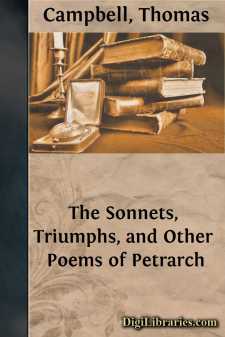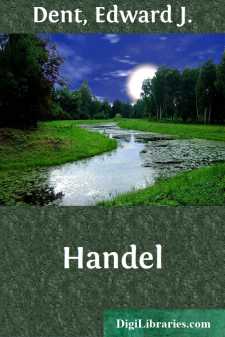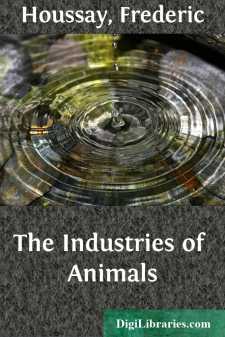Categories
- Antiques & Collectibles 13
- Architecture 36
- Art 48
- Bibles 22
- Biography & Autobiography 813
- Body, Mind & Spirit 142
- Business & Economics 28
- Children's Books 14
- Children's Fiction 11
- Computers 4
- Cooking 94
- Crafts & Hobbies 4
- Drama 346
- Education 46
- Family & Relationships 57
- Fiction 11829
- Games 19
- Gardening 17
- Health & Fitness 34
- History 1377
- House & Home 1
- Humor 147
- Juvenile Fiction 1873
- Juvenile Nonfiction 202
- Language Arts & Disciplines 88
- Law 16
- Literary Collections 686
- Literary Criticism 179
- Mathematics 13
- Medical 41
- Music 40
- Nature 179
- Non-Classifiable 1768
- Performing Arts 7
- Periodicals 1453
- Philosophy 64
- Photography 2
- Poetry 896
- Political Science 203
- Psychology 42
- Reference 154
- Religion 513
- Science 126
- Self-Help 84
- Social Science 81
- Sports & Recreation 34
- Study Aids 3
- Technology & Engineering 59
- Transportation 23
- Travel 463
- True Crime 29
Sort by:
by:
Bernard Shaw
ACT I An October night on the Syrian border of Egypt towards the end of the XXXIII Dynasty, in the year 706 by Roman computation, afterwards reckoned by Christian computation as 48 B.C. A great radiance of silver fire, the dawn of a moonlit night, is rising in the east. The stars and the cloudless sky are our own contemporaries, nineteen and a half centuries younger than we know them; but you would not...
more...
by:
Thomas Campbell
THE LIFE OF PETRARCH. The family of Petrarch was originally of Florence, where his ancestors held employments of trust and honour. Garzo, his great-grandfather, was a notary universally respected for his integrity and judgment. Though he had never devoted himself exclusively to letters, his literary opinion was consulted by men of learning. He lived to be a hundred and four years old, and died, like...
more...
There were ripples of sunshine all tangled in the glowing scarlet of the geranium bed and dancing blithely over the grass. A world of melody in quivering bursts of happy song came from the spreading canopy of leaves overhead, and as an accompaniment, the wind laughed and whispered and kept the air in one continual smile with a kiss on its lips, born of supreme contentment in the summer loveliness. In...
more...
BED IN SUMMERIn winter I get up at nightAnd dress by yellow candle-light.In summer, quite the other way,I have to go to bed by day.I have to go to bed and seeThe birds still hopping on the tree,Or hear the grown-up people's feetStill going past me in the street.And does it not seem hard to you,When all the sky is clear and blue,And I should like so much to play,To have to go to bed by day?...
more...
by:
Sepharial
CHAPTER I. A POSTULATE Any attempt at a scientific explanation of the phenomenon of "crystal seering," to use an irregular but comprehensive term, would perhaps fall short of completeness, and certainly would depend largely upon the exercise of what Professor Huxley was wont to call "the scientific imagination." The reasons for this are obvious. We know comparatively little about atomic...
more...
by:
Sarah L. Barrow
THE OLD BACHELOR'S STORY. In the city block where I live, there are just twenty-four houses on the other side of the street, and twenty-four on this side, six lamp posts, and eight ailanthus trees in green boxes. Oh, dear me, what a tiresome row! That's what I thought when I first came to lodge here; for, as I am an old bachelor, I don't want a whole house to myself; but now, when I sit...
more...
by:
Edward J. Dent
CHAPTER I Birth and parentage—studies under Zachow at Halle—Hamburg—friendship and duel with Mattheson—Almira—departure for Italy. The name of Handel suggests to most people the sound of music unsurpassed in massiveness and dignity, and the familiar portraits of the composer present us with a man whose external appearance was no less massive and dignified than his music. Countless anecdotes...
more...
Through the glamour of the Colonial we are forced to acknowledge the classic charm shown in late seventeenth and early eighteenth century window designs. Developed, as they were, by American carpenters who were stimulated by remembrance of their early impressions of English architecture received in the mother land, there is no precise or spiritless copy of English details; rather there is expressed a...
more...
by:
Frederic Houssay
The naturalists of yesterday and the naturalists of to-day. — The study of animals, plants, rocks, and of natural objects generally, was formerly called “natural history”; but this term is tending to disappear from our vocabulary and to give place to the term “natural sciences.” What is the reason of this change, and to what does it correspond? for it is rare for a word to be modified in...
more...
by:
Egerton Brydges
No one can have reflected on the history of genius without being impressed with a melancholy feeling at the obscurity in which the lives of the poets of our country are, with few exceptions, involved. That they lived, and wrote, and died, comprises nearly all that is known of many, and, of others, the few facts which are preserved are often records of privations, or sufferings, or errors. The cause of...
more...











